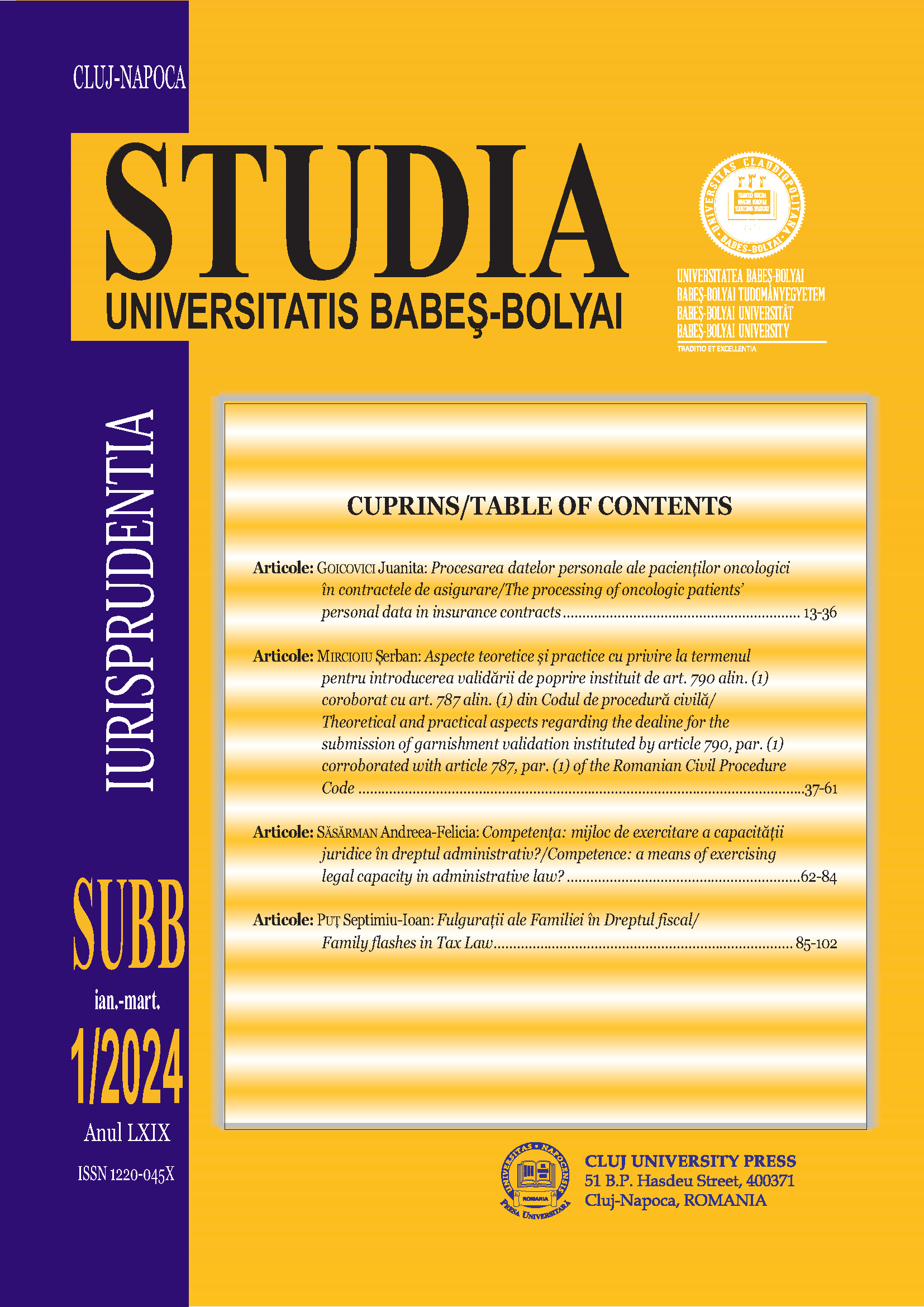COMPETENȚA: MIJLOC DE EXERCITARE A CAPACITĂȚII JURIDICE ÎN DREPTUL ADMINISTRATIV?
COMPETENCE: A MEANS OF EXERCISING LEGAL CAPACITY IN ADMINISTRATIVE LAW?
Author(s): Andreea-Felicia SăsărmanSubject(s): Administrative Law
Published by: Studia Universitatis Babes-Bolyai
Keywords: legal personality; legal personality under public law; legal capacity; administrative capacity; competence; the principle of speciality.
Summary/Abstract: Competence: a means of exercising legal capacity in administrative law? The notion of legal personality is not synonymous with that of legal capacity, between them there is a causal link that could not be reversed: personality generates legal capacity and not the other way around. Just as the notion of administrative capacity does not replace and does not attract any specific effect to the legal category of civil law capacity. Keeping in mind the presence of legal capacity in administrative law, we analyzed the difference between the notion of capacity and competence in French doctrine. I noticed, thus, that regardless of the opinions expressed over time by several authors, none was in the sense of excluding the notion of capacity in administrative law. In national law, both the legislator and the doctrine agreed on the definition of competence as: a set of attributions. The public authority/institution is charged with these duties by law. Thus, a public authority/institution is, in principle, incompetent, becoming competent when the law expressly provides. Instead, a public authority/institution has, in principle, legal capacity, becoming incapable when the law expressly provides. A public authority/institution carries out its activity in compliance with the specialty principle. In this case, specialty means nothing more than the material competence of the legal entity under public law.
Journal: Studia Universitatis Babes Bolyai - Iurisprudentia
- Issue Year: 69/2024
- Issue No: 1
- Page Range: 62-84
- Page Count: 23
- Language: Romanian

